5 biggest surprises in Syria bombing
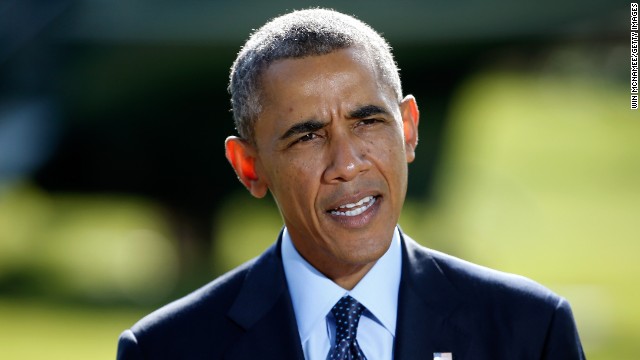 America had already telegraphed plans to attack terrorist targets in Syria, but the operation that unfolded over Syrian skies overnight brought several significant and revealing surprises.
America had already telegraphed plans to attack terrorist targets in Syria, but the operation that unfolded over Syrian skies overnight brought several significant and revealing surprises.
Here are five important ones:
1. Arab countries joined in attacking ISIS.

Frida Ghitis
It was always crucial
that Washington keep this fight against the so-called Islamic State from
becoming another American war, and especially that it deny extremists
the ability to portray it as a war against Muslims or against Arabs.
This opening salvo in Syria is an important step in that direction. The U.S. reported
that Bahrain, Jordan, Saudi Arabia, the United Arab Emirates and Qatar
-- all Sunni states -- "participated in or supported" strikes against
ISIS, which is also Sunni and violently anti-Shiite.
The "supported" part probably applies to Qatar, whose participation in any capacity is quite a surprise. Qatar has actively backed the opposition
against Syrian President Bashar al-Assad, and many blame it for
funneling the support that allowed Islamist groups to emerge as the
dominant segment of the anti-al-Assad forces.
2. The United States didn't just hit ISIS, it targeted al Qaeda's Khorasan Group's "imminent" attack on America.
This news bombshell was
hidden in the Pentagon's press release, which said the U.S. "took action
to disrupt an imminent attack plotting against the United States and
Western interests." Until now, the debate over whether or not the United
States should strike in Syria has referred specifically to the threat
posed by ISIS, but outside the United States, there has been growing concern about the rise of Khorasan, a group made up of highly experienced al Qaeda fighters.
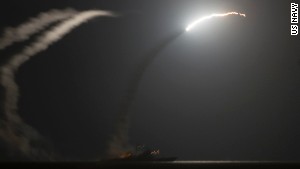
Pentagon details anti-ISIS airstrikes
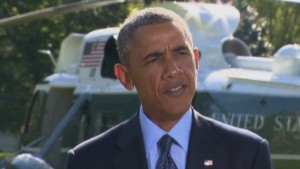
Obama: This is not America's fight alone
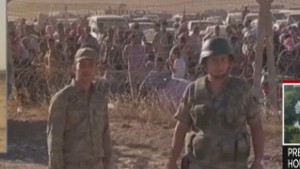
Syrian refugees flood Turkish border
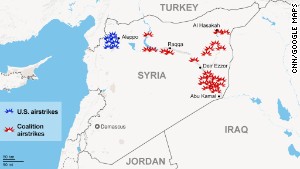
What is the Khorasan Group?
U.S. Central Command said
American forces -- without Arab participation -- struck explosives and
munitions depots, training camps and other Khorasan facilities.
By attacking al Qaeda,
the United States is helping prevent another militant group from filling
the vacuum when and if ISIS loses strength in Syria. Defanging Khorasan
would make it possible for moderate Syrian rebels -- rather that
al-Assad regime forces or other extremists --- to move in where ISIS
falls back.
3. The rise of ISIS has triggered jihadi competition to strike the United States.
The emergence of
Khorasan as a major player in Syria points to the intensity of rivalry
between jihadi groups in Syria. That is good news in the sense that ISIS
and al Qaeda have more enemies, but it is extremely dangerous because
jihadi groups are likely to try to upstage one another by hitting
American and Western targets.
The Khorasan Group is
headed by Muhsin al Fadhli, a 33-year-old Kuwaiti who has topped
most-wanted lists in many countries. He reportedly played a major role
in the acrimonious breakup in Syria between ISIS and al Qaeda. Al Fadhli
and ISIS leader Abu Bakr al-Baghdadi operate from a personal enmity. As
al-Baghdadi seeks to topple al Qaeda as the leader of global jihad, it
is reasonable to expect that the two organizations will compete for
adherents and prestige by seeking to attack Americans and Europeans.
4. Al-Assad didn't respond, but a Syrian fighter jet crossed into Israel and was shot down.
The most daunting aspect
of the fight against Islamist extremists in Syria is that they seek to
topple al-Assad. Meanwhile, America's position remains that al-Assad should leave power. The enemy of their enemy is no friend of the United States. Washington maintains
that it did not seek permission from al-Assad to strike inside his
country and there was "no coordination or cooperation" with either Syria
or its ally, Iran.
Syria's foreign ministry says the
United States informed its U.N. envoy before striking on its territory.
Damascus did not lift a finger to object to the violation of its
airspace by a hostile military coalition.
There was, however, another incident. Israel says
that early Tuesday a Syrian fighter jet infiltrated Israeli airspace
and was shot down. The pilots ejected safely into Syria space. Israel
says the plane flew half a mile into its territory and says it has no
intention of becoming involved in the war in Syria. It was the first
time in more than two decades that Israel has intercepted a Syrian
military plane, and a retired Israeli general told The New York Times he
thought the incursion was not deliberate. Whatever triggered the
incident, it is further evidence of just how dangerous the Syrian
conflict is, and how easily it could continue to expand into new
territories.
5. America's timing is smart, strategic and a little embarrassing.
The timing of America's first direct hit inside Syria comes almost exactly a year after President Barack Obama announced
he would strike against al-Assad's forces because they had crossed his
"red line" by using chemical weapons. That did not happen. Now Obama is
hitting al-Assad's enemies. The irony is more than a little awkward, but
the timing could prove politically productive.
The attacks came just
hours before Obama's scheduled speech to the U.N. General Assembly, an
annual gathering that not only provides an important platform to address
the international community but also offers almost unlimited
possibilities for face-to-face meetings with world leaders. The United
States is in the middle of a major diplomatic push to build up support
against ISIS.
At the United Nations,
Obama will make the case for the rightness of the cause against the
murderous extremists seeking to terrorize the Middle East and the world.
He also needs to invigorate the push for a less sectarian government in
Iraq, so that the country's Shiites and Sunnis will join in the
life-and-death struggle against ISIS. He will seek to enlist new allies
in the fight and bring old ones -- notably Turkey -- into line.
After years of resisting
intervention in Syria, after more than 200,000 people have died,
millions have been displaced there, and after the Syria civil war has
metastasized and spread, fracturing Iraq and sending millions of
refugees into Jordan, Lebanon, Turkey and elsewhere, the United States
finally decided to act.
That it eventually would have no choice but to do so is hardly unexpected. But there are sure to be many more surprises in the months to come.
There is ample irony in
the timing and the occasion -- the highest-profile meeting of the
world's foremost peace organization -- but there is also news that the
people in ISIS-controlled parts of Syria are quietly celebrating
America's newfound resolve.










0 comments:
Post a Comment